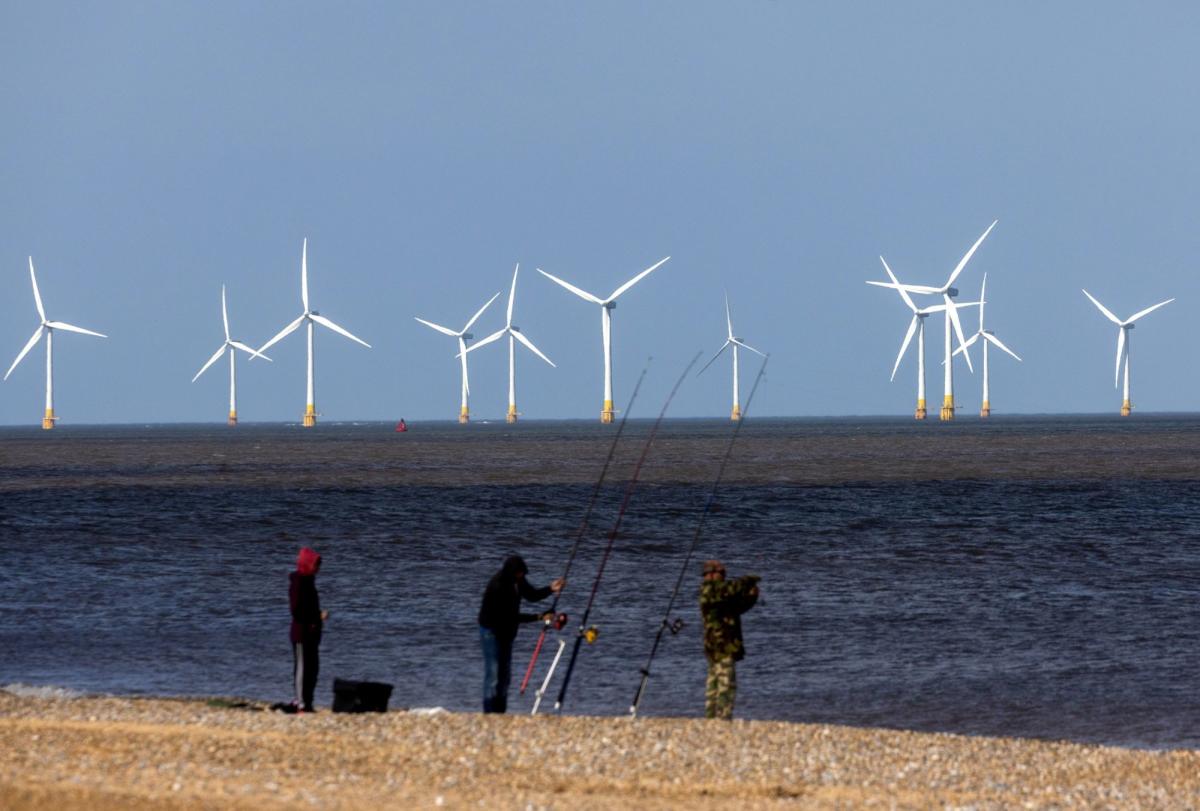
(Bloomberg) — The UK will cap the revenue of renewable and nuclear power producers from next year, a move the government says will lead to consumers paying a fairer price for clean electricity supplies.
Most Read from Bloomberg
The temporary intervention — dubbed a “cost-plus-revenue limit” — will apply from the start of 2023, the Department for Business, Energy and Industrial Strategy said in a statement late Tuesday. Legislation will be introduced on Wednesday to enact the measures.
The plan will impact some of the country’s biggest renewable power companies, and is designed to stop producers making windfall profits as high gas prices dictate the cost of electricity. Details of how ministers will redistribute the revenue grab are sparse but the government said the measure will help consumers cope with rising bills.
“We have been working with low-carbon generators to find a solution that will ensure consumers are not paying significantly more for electricity generated from renewables and nuclear,” Business Secretary Jacob Rees-Mogg said in the statement. “Businesses and consumers across the UK should pay a fair price for energy.”
Power prices are more than five times higher than usual for this time of year leading some generators to make what the government has called “extraordinary profits.” But there are concerns that a measure that limits revenue or profits of low-carbon generation will deter the investment Britain needs to reach its emissions goals.
While the government has been in talks for weeks with industry, many of the details of the measure haven’t been ironed out, including what level the limit on revenue will be set at. The precise mechanics of the policy are subject to a consultation that’s yet to be launched.
‘Strange’ Proposal
“It’s disappointing that such a significant market intervention by the government has come with so little detail: all this does is create uncertainty,” Scottish Power Ltd. Chief Executive Officer Keith Anderson said in a statement.
The measures will apply to low-carbon generating assets not currently covered by so-called contracts for difference, a subsidy mechanism that fixes the price at which generators sell electricity. The department said it has the potential to save billions of pounds for British bill payers.
Prime Minister Liz Truss has ruled out an extension to a windfall tax on oil and gas profits, arguing it could curb future investment necessary to the UK’s energy security. The plan unveiled late Tuesday will cap excess revenues rather than all profits, but still risks discouraging industry from making the investments needed to overhaul Britain’s power system in the coming decades to slash emissions and increase domestic supplies.
“This crisis has been caused by the cost of gas and it’s strange the proposed solution is to cap the price of low carbon generation and to leave the gas sector untouched,” Anderson said. He added that the suggestion renewable generators are making extraordinary profits is “deeply” worrying because the power was sold before Russia’s invasion of Ukraine sent energy prices soaring.
The cap will still allow generators in England and Wales to cover their costs, and receive revenue that reflects their operational output and investment commitment, according to BEIS. One factor being considered is the pre-energy crisis expectations for wholesale prices.
The program will stay in place until either markets return to normal or generators move onto other market arrangements, such as a CfD contract. Wednesday’s legislation also includes powers to run voluntary CfDs for existing generators from 2023, and puts into law the UK’s multi-billion-pound energy support package for both households and businesses.
Most Read from Bloomberg Businessweek
©2022 Bloomberg L.P.




